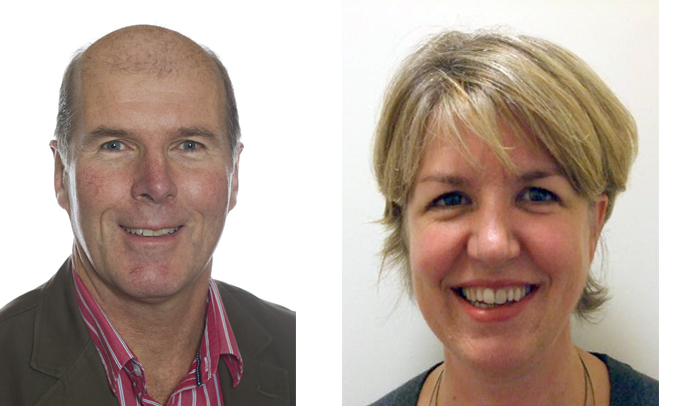Committee, Council & SIG Updates
Nasogastric Tube Special Interest Group (NGSIG)

Dr Barry Jones, Member and Wendy-Ling Relph, Chair NGSIG
Email: ngsig@bapen.org.uk
Website: www.bapen.org.uk/about-bapen/committees-and-groups/bapen-special-interest-groups/ng-sig
The NGSIG continues to support and lead on nasogastric tube insertion as a risk for aerosol transmission of COVID-19. The Aerosol Generating Procedures (AGP) Alliance, chaired by NGSIG’s Barry Jones, met with representatives from the Department of Health and Social Care (DHSC), Public Health England (PHE) and the Infection Control & Prevention Cell (IPC) in June.
The AGP Alliance
We gave a powerful multidisciplinary presentation but the questions we asked have yet to be answered. In particular, the AGP Alliance asked if they regarded the risk as greatest at close range to a COVID-19 patient, where there is little ventilation. Once this is admitted, enhanced PPE will become essential to all working in close proximity to patients, irrespective of the procedure being undertaken or the location of the patient.
The AGP Alliance are aware that in many Trusts, a more enlightened approach has been allowed, with FFP3 or respirator hoods the norm. We have also heard of staff being intimidated into not using FFP3 masks for high-risk procedures, such as nasogastric tube (NGT) insertion outside of critical care areas.
The AGP Alliance is now formed of 17 professional bodies, with further collaboration from 9 others, including Royal College of Nursing, British Medical Association and The Royal College of Midwives. In total, we represented over 1 million healthcare workers when we met with the DHSC, PHE and IPC. The most recent change to the current guidance seems more permissive of FFP3 or equivalent, but the risk assessment required has only one outcome if an AGP is currently defined as not being performed – use of a surgical mask! Now almost 1.5 years into the pandemic and we still are not aligned with other countries, such as the USA, Australia or Germany in this regard.
NGSIG & NGT safety
NGT safety continues to occupy our time. We have submitted our work on the ‘AIDE-MEMOIRE Nasogastric tube (NGT) placement checks before first use in critical care settings during the COVID-19 response’ to the Health Service Journal for its annual awards in the Patient Safety category. It is important to note that the predicted hike in never events caused by the 2/3-fold increase in NGT feeding in critical care or high dependency areas during the height of the COVID-19 pandemic did not materialise, perhaps in part due to our alert.
We have started the process of looking into novel methods to ensure greater NGT insertion safety and will report in due course.

The Nutrition Society

Dr Bernadette Moore, University of Leeds, The Nutrition Society Clinical/Medical Advisory Council member
Email: office@nutritionsociety.org
Website: www.nutritionsociety.org
Twitter: @Nutritionsoc
Instagram: the_nutrition_society
LinkedIn: /nutrition-society
2021 continues positively, as we slowly ease out of the restrictions we have all faced for the last 18 months. Like us as individuals, the Nutrition Society is also transitioning into a new era. Following a period of extensive consultation with Trustees, members of Council, and external organisations, the Society has recently published its new five-year Strategic Plan. Building on previous achievements, yet designed to keep pace with evolving scientific, political, and cultural trends in the UK and internationally, it is great to see that Equality, Diversity, and inclusion (EDI) is a key feature that is embedded throughout the strategy.
Although now easing, the pressures of the pandemic over the course of last year have made it clear that nutrition ought to have a fundamental place in health and social care settings. The recent Memorandum of Understanding between BAPEN and the Nutrition Society, which was signed in March 2021, is a wonderful milestone. I am hopeful that, together, our two respective organisations will muster a louder voice for nutrition. I am very keen to build on this and raise the prospect of valuable partnership projects, both through collaboration on an emerging new All Party Parliamentary Group and setting up of a ‘Trustee-to-Trustee’ round table discussion between the two organisations to facilitate strategic networking and further collaboration.
Since my last report, I am pleased to update on my work with the Association for Nutrition’s (AfN) Nutrition Interprofessional Group as Clinical/Medical Advisory Council Member for the Society. With the undergraduate nutrition curriculum now finalised, our work now continues the challenging aspect of implementing this into the medical nutrition curriculum.
The Society’s Science Committee continue to deliver high quality programmes, and the recent Summer Conference ‘Nutrition in a Changing World’ provided great insight into the agricultural and dietary behaviour changes required to meet the nutritional needs of a growing and ageing population, whilst considering climate change.
Similarly, the Society’s Training Academy (NSTA) continues to strengthen its already diverse training package for nutrition professionals by increasing its provision of on-demand webinars and consciously working to ensure topics meet the demand of health care professionals with topics covering Obesity, and Nutrition in the treatment and management of disease.
News on the Society’s journals include a current waiver on the article processing charges for all manuscripts submitted to the new open access journal ‘Gut Microbiome’ until 31 March 2022. This offers a great opportunity to those of you working in gut research to publish papers in a journal that supports development of an integrated, interdisciplinary understanding of the gut microbiome.
Finally, I would like to make all BAPEN members aware of the Nutrition Society’s Annual Winter Conference, taking place on 7-8 December 2021. This will be the Society’s first hybrid event and, with the topic ‘Obesity and the Brain’ being of great relevance to many of you. I will look forward to seeing some familiar faces in attendance – it sure has been a while since we’ve been able to catch up face-to-face. The conference also offers a great opportunity for the researchers amongst you to present your work during the Original Communication sessions and get published in The Proceedings of the Nutrition Society.
In the meantime, I am very much looking forward to seeing old faces and meeting new BAPEN members at the BAPEN Annual Conference on 30 November & 1 December, where Professor Carel Le Roux has agreed to be the Nutrition Society sponsored speaker.
